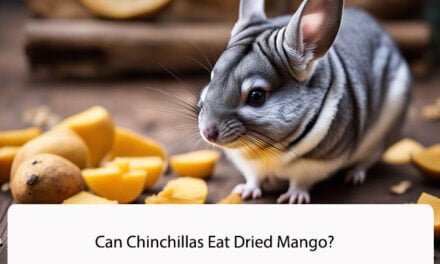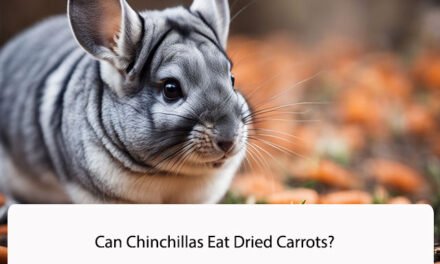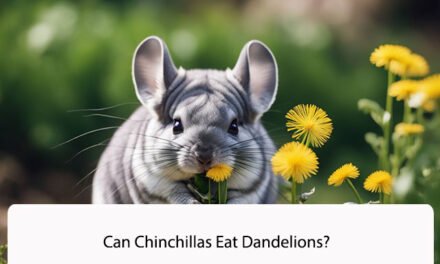Chinchillas are adorable and friendly animals that make great pets. They are herbivores and require a specific diet to maintain their health and well-being. While hay is the main staple of their diet, chinchilla owners may wonder if they can give their pets dried fruits as a treat. In this article, we will explore whether chinchillas can eat dried fruits and what precautions owners should take.
Dried fruits are a popular snack for humans due to their sweetness and convenience. However, just because something is safe for us to eat does not mean it is safe for our pets. Chinchillas have sensitive digestive systems, and certain foods can cause health problems. As such, it is important to know what foods are safe for chinchillas to eat and what foods should be avoided. In the next section, we will examine the nutritional needs of chinchillas and what foods they should eat to stay healthy.
Nutritional Needs of Chinchillas
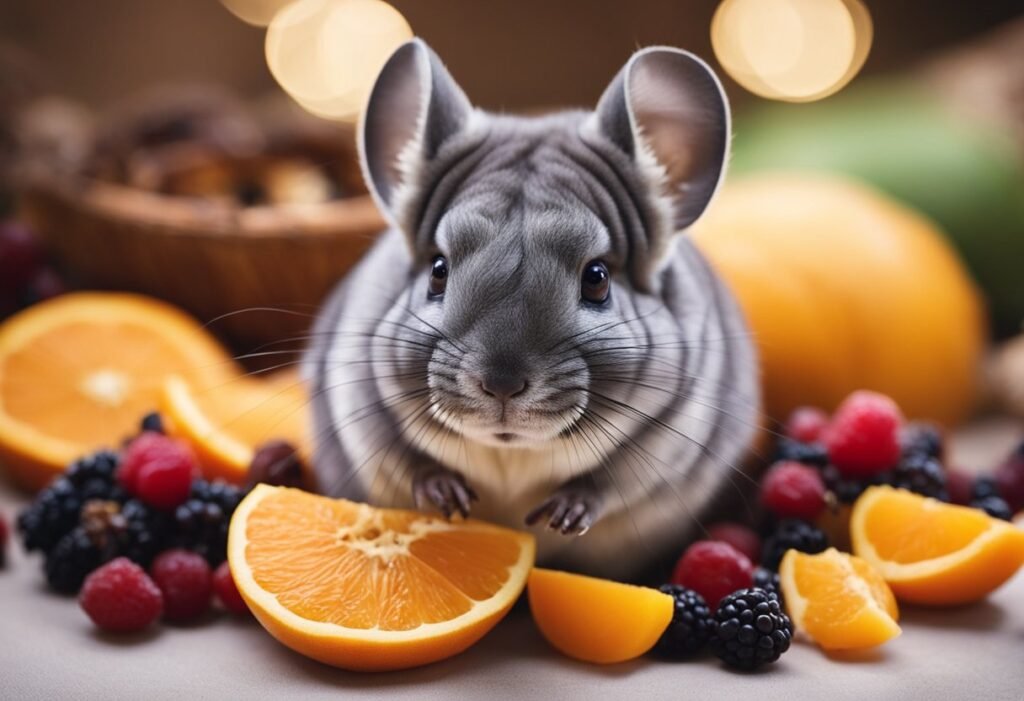
As chinchillas are herbivores, their diet should consist mainly of hay, fresh vegetables, and a limited amount of pellets. Although dried fruits may seem like a healthy snack, they are not an essential part of a chinchilla’s diet and should be given sparingly.
Chinchillas have specific nutritional needs, and it is essential to provide them with a balanced diet to maintain their health. Their diet should be high in fiber, low in fat, and low in sugar. A diet that is too high in sugar or fat can lead to obesity, dental problems, and digestive issues.
Hay is a crucial part of a chinchilla’s diet, and they should have access to fresh hay at all times. Timothy hay is the most commonly recommended type of hay for chinchillas, but other types of grass hay can also be given. Fresh vegetables such as kale, spinach, and carrots can also be given as a treat but should be given in moderation.
In conclusion, while dried fruits may seem like a healthy snack, they should be given sparingly as they are not an essential part of a chinchilla’s diet. A balanced diet consisting of hay, fresh vegetables, and a limited amount of pellets is essential to maintain a chinchilla’s health.
Pros and Cons of Dried Fruits for Chinchillas
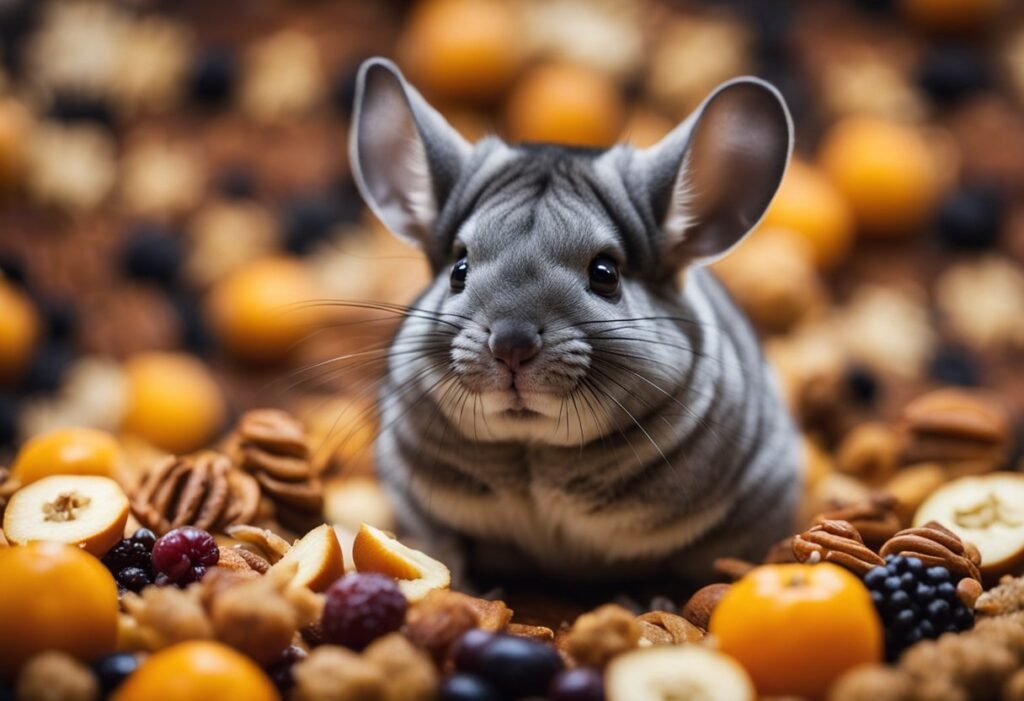
When it comes to feeding chinchillas, dried fruits are often a topic of debate. While some pet owners believe that dried fruits are a healthy and tasty addition to their chinchilla’s diet, others are concerned about the potential risks associated with feeding these treats. In this section, we will explore the pros and cons of dried fruits for chinchillas.
Benefits of Dried Fruits
Dried fruits can provide chinchillas with a variety of nutrients and vitamins. For example, dried apricots are a good source of vitamin A, which is important for maintaining healthy vision and skin. Dried figs are rich in fiber, which can aid in digestion and prevent constipation. Dried cranberries are packed with antioxidants, which can help boost the immune system.
In addition to their nutritional value, dried fruits can also serve as a tasty treat for chinchillas. Many chinchillas enjoy the sweet and chewy texture of dried fruits, and they can be a great way to provide enrichment and mental stimulation for your pet.
Risks Associated with Dried Fruits
While dried fruits can offer some benefits, there are also potential risks associated with feeding them to chinchillas. One of the main concerns is the high sugar content of many dried fruits. Chinchillas are prone to dental problems and obesity, so it is important to limit their intake of sugary treats.
Another risk of feeding dried fruits to chinchillas is the potential for digestive issues. Dried fruits are often high in fiber, which can be beneficial in small amounts. However, if your chinchilla eats too much fiber too quickly, it can lead to bloating, gas, and other digestive problems.
Finally, it is important to note that not all dried fruits are safe for chinchillas. Some fruits, such as raisins and grapes, can be toxic to chinchillas and should be avoided.
Overall, dried fruits can be a healthy and enjoyable treat for chinchillas when fed in moderation. However, it is important to choose the right types of fruits and limit their intake to avoid potential health problems.
Safe Dried Fruits for Chinchillas

As herbivores, chinchillas require a diet rich in fiber, low in fat, and moderate in protein. While fresh hay is the cornerstone of their diet, adding small amounts of dried fruits can provide a tasty and nutritious treat. However, not all dried fruits are safe for chinchillas to consume. In this section, we will discuss the recommended dried fruits and how to prepare and serve them.
Recommended Dried Fruits
Here are some safe dried fruits that you can offer your chinchilla in small amounts:
| Dried Fruit | Nutritional Benefits |
|---|---|
| Apple | High in fiber and vitamin C |
| Apricot | Rich in fiber, potassium, and vitamin A |
| Banana | Good source of potassium and vitamin C |
| Blueberry | Rich in antioxidants and vitamin C |
| Cranberry | Contains antioxidants and helps prevent urinary tract infections |
| Papaya | High in fiber and vitamin C |
| Pineapple | Contains bromelain, which aids in digestion |
It’s important to note that dried fruits should be given as a treat and not as a substitute for their regular diet. Also, avoid giving your chinchilla too much dried fruit as it can lead to digestive issues.
Preparation and Serving Tips
Before offering any dried fruit to your chinchilla, make sure it’s free from added sugars, preservatives, and other harmful additives. It’s best to purchase organic, unsweetened dried fruits from a reputable source.
To serve, chop the dried fruit into small pieces and offer it in moderation. A small piece or two per week is enough to satisfy your chinchilla’s sweet tooth. Always make sure there’s fresh water available for your chinchilla to drink.
In conclusion, dried fruits can be a healthy and delicious addition to your chinchilla’s diet when given in moderation. Stick to the recommended fruits and follow the preparation and serving tips to ensure your chinchilla stays happy and healthy.
Fruits to Avoid
Harmful Dried Fruits
While some dried fruits can be a healthy and tasty treat for chinchillas, there are certain types of dried fruits that are harmful to their health. These fruits should be avoided at all costs.
One such fruit is raisins. Raisins are high in sugar and can cause digestive problems for chinchillas. They can also lead to obesity and tooth decay if consumed in excess. Another fruit to avoid is dried apricots. These fruits are also high in sugar and can cause digestive issues.
Reasons for Avoidance
The main reason to avoid these harmful dried fruits is that they can cause serious health problems for chinchillas. These problems can include digestive issues, obesity, and tooth decay. In addition, some dried fruits may contain preservatives or other additives that can be harmful to chinchillas.
It is important to remember that chinchillas have very specific dietary needs, and their diet should be carefully monitored to ensure that they are getting all of the nutrients they need to stay healthy. While some fruits can be a healthy addition to their diet, it is important to only offer them in moderation and to avoid any fruits that may be harmful to their health.
In summary, while some dried fruits can be a healthy and tasty treat for chinchillas, there are certain types of dried fruits that should be avoided. Raisins and dried apricots are two examples of fruits that can cause serious health problems for chinchillas. It is important to carefully monitor a chinchilla’s diet and only offer fruits in moderation to ensure their health and well-being.
Feeding Guidelines for Chinchillas
When it comes to feeding chinchillas, it’s important to provide them with a balanced diet that meets their nutritional needs. In this section, we’ll cover some guidelines for feeding your chinchilla, including portion control and frequency of feeding.
Portion Control
Chinchillas have sensitive digestive systems, and overfeeding them can lead to health problems. It’s important to provide them with the right amount of food to keep them healthy. A good rule of thumb is to provide your chinchilla with about 1-2 tablespoons of pellets per day. You can also give them a small amount of hay and fresh vegetables as treats, but be sure to limit these to no more than 1-2 tablespoons per day as well.
Frequency of Feeding
Chinchillas are grazers, which means they prefer to eat small amounts of food throughout the day. It’s best to provide them with fresh food and water every day, and to feed them at the same time each day to establish a routine. You can also provide them with a small amount of hay throughout the day to keep their digestive system healthy.
In summary, when feeding your chinchilla, it’s important to provide them with the right amount of food and to feed them at regular intervals. By following these guidelines, you can help keep your chinchilla healthy and happy.
Alternatives to Dried Fruits
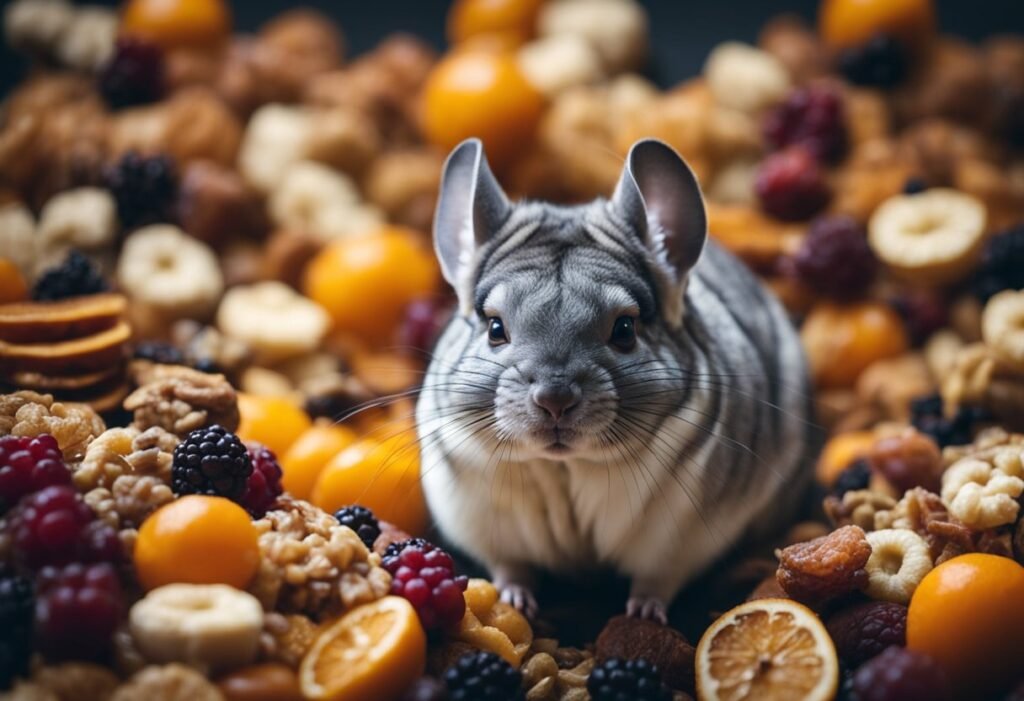
While dried fruits can be a tasty and nutritious snack for chinchillas, it’s important to remember that they should only be given in moderation due to their high sugar content. If you’re looking for alternative snack options for your furry friend, here are some healthy options to consider:
Healthy Snack Options
- Fresh fruits and vegetables: These are a great option for chinchillas as they provide a variety of essential vitamins and minerals. Some good options include apples, carrots, kale, and celery. Be sure to introduce new foods slowly to avoid any digestive issues.
- Hay cubes: These are compressed blocks of hay that can provide a fun and healthy snack for your chinchilla. They also help to promote dental health by encouraging chewing.
- Rose hips: These are small, round fruits that are high in vitamin C and antioxidants. They can be a tasty and nutritious treat for your chinchilla.
- Timothy hay-based treats: There are a variety of treats available that are made with timothy hay, which is a staple food for chinchillas. These treats can be a good source of fiber and other essential nutrients.
Remember to always monitor your chinchilla’s diet and adjust accordingly based on their individual needs. Providing a variety of healthy snack options can help keep your furry friend happy and healthy.
Monitoring Chinchilla Health
As responsible chinchilla owners, we must monitor our pets’ health regularly. One of the crucial aspects of keeping our chinchillas healthy is their diet. While dried fruits can be a tasty treat for chinchillas, we must ensure that we do not overfeed them or provide them with fruits that are harmful to their health.
Signs of Proper Nutrition
A chinchilla that is receiving proper nutrition will have a healthy coat, clear eyes, and a good appetite. Their droppings will be small, hard, and dark in color. They will also be active and playful, with no signs of lethargy or depression.
Warning Signs of Dietary Issues
If our chinchillas are not receiving a balanced diet, they may develop various health issues. Some signs of dietary issues include:
- Loose or watery droppings
- Lack of appetite or excessive hunger
- Dull or thinning coat
- Lethargy or depression
- Dental problems
If we notice any of these signs, we must take immediate action to correct our chinchilla’s diet. We should consult with a veterinarian or a chinchilla expert to ensure that we are providing our pets with the proper nutrition they need.
In conclusion, monitoring our chinchilla’s health is crucial to their well-being, and their diet is a significant factor in their overall health. By providing our chinchillas with a balanced diet and monitoring their health regularly, we can ensure that they live a long and healthy life.
Frequently Asked Questions
What types of treats are safe for chinchillas?
Chinchillas enjoy treats just like any other pet, but it’s important to choose the right ones. Treats should only make up a small portion of your chinchilla’s diet, and should be given sparingly. Safe treats for chinchillas include hay cubes, rose hips, and dried herbs like chamomile and lavender.
Which vegetables are recommended for chinchilla diets?
Vegetables can be a great source of nutrition for chinchillas, but not all vegetables are safe for them to eat. Safe vegetables for chinchillas include dark leafy greens like kale and spinach, and root vegetables like carrots and sweet potatoes. However, vegetables should also be given in moderation, as too much can cause digestive issues.
Are bananas considered a safe snack for chinchillas?
While bananas are a popular fruit for many pets, they are not recommended for chinchillas. Bananas are high in sugar and can cause digestive issues for chinchillas. It’s best to stick to safe fruits like apples, pears, and berries.
Is it safe for chinchillas to consume nuts or almonds?
Nuts and almonds are not recommended for chinchillas. They are high in fat and can cause health issues like obesity and liver disease. Stick to safe treats like hay cubes and dried herbs instead.
What fruits are appropriate for chinchillas to eat?
Safe fruits for chinchillas include apples, pears, and berries. However, fruits should also be given in moderation, as they are high in sugar and can cause digestive issues.
What foods should be avoided to prevent harm to chinchillas?
Foods to avoid giving to chinchillas include chocolate, caffeine, dairy products, and anything high in sugar or fat. These foods can cause digestive issues and other health problems for chinchillas. It’s best to stick to a diet of hay, pellets, and safe treats and vegetables.


